Update time:2025-10-16Visits:4787

Dr. Chen Guoqiang, Pathophysiologist, Academician of the Chinese Academy of Sciences, Director of the State Key Laboratory of Oncogenes and Related Genes at Renji Hospital.
Introduction
His journey has taken him from the banks of the Xiang River to the shores of the Huangpu River, marked by constant self-transcendence and an unwavering pursuit of his dreams. He witnessed the remarkable rise of Shanghai Jiao Tong University School of Medicine (SJTUSM) and now dedicates his passion to advancing medicine in Hainan.
“Leadership springs from dreams; dreams ignite passion; passion shapes the future.”
This motto defines his life’s work. Under his guidance, countless students, scholars, and physicians have found their purpose, igniting a passion that has driven them to make significant contributions to society.
During his tenure, SJTUSM achieved extraordinary progress in research, education, and healthcare. Embracing a spirit of “daring innovation and bold reform,” he spearheaded transformative initiatives in both science and education.
“Every grain of sand builds a tower”—a phrase he often uses to describe his philosophy. He believes that collective strength emerges from united individual efforts, enabling teams to scale new heights. In such an environment, every member discovers their value and the power of camaraderie, striving together to advance the frontiers of medicine.
His story is one of perseverance and wisdom, creating a remarkable legacy. Under his leadership, both students and colleagues have found their calling, reignited their passion, and carried his vision forward.
A Dreamer in Medicine
Chen Guoqiang was born in 1963 in You County, Hunan Province. The youngest child in a rural family, his name, Guoqiang (“strengthening the nation”), reflected his grandfather’s hope that he would contribute to the country’s prosperity. Describing himself as “a commoner with no background,” his journey demonstrates that life’s possibilities are limitless.
In September 1980, after three attempts, Chen enrolled at Hengyang Medical College (now the University of South China). “It was a unique era, just after the reinstatement of the national college entrance exam (Gaokao), and everyone was eager for education,” he recalls. “After failing the first time, I wanted to quit, but my eldest brother, a county official, urged me on. He said, ‘The nation is changing; how can we progress without education?’ I am grateful for his persistence and my family’s support.”
Chen became the first university student from his village. In his second year, his life was transformed by a week-long lecture series from Professor Wang Zhenyi of Shanghai Second Medical College, the “Father of Cancer Induction Differentiation Therapy.” Inspired, Chen resolved to become a scientist and Professor Wang’s graduate student. His academic performance soared, earning him “Triple-A Student” honors for four consecutive years. Upon graduating in 1985, he was admitted to Professor Wang’s master’s program in pathophysiology at Shanghai Second Medical College. “My childhood dream of becoming a scientist felt within reach,” Chen said.

SJTUSM: A Home for Dreams and Striving
At Shanghai Second Medical University, Chen fell in love with scientific research. “Life sciences are the most fascinating field,” he said. “Exploring questions like why the heart beats or why we sleep reveals the infinite mysteries of life.”
His mentor, Professor Wang, instilled in him a rigorous work ethic. Chen recalls drafting his 50-page master’s thesis by hand. “Professor Wang covered it in annotations, down to every punctuation mark. We revised it ten times; I copied it by hand ten times. Without computers or printers, it was a lesson in precision.”
In 1993, at age thirty, Chen left a stable faculty position at Hengyang Medical College to return to Shanghai and join Professor Wang’s team for new challenges. “My father taught me to prioritize others and serve the nation,” Chen explained. “If I could hoist the sails of my dreams once more, it would all be worthwhile.”
Back in Shanghai, he joined a research group studying leukemia. In 1994, he published his first international paper as lead author in Leukemia. In 1996, he was part of the team that published a landmark paper in Blood on using arsenic trioxide to treat acute promyelocytic leukemia (APL). The next day, Science highlighted the work in a story titled “Ancient Remedy Performs New Tricks,” bringing this traditional Chinese medicine to global prominence. After earning his Ph.D., Chen published two more papers in Blood in 1997. These three studies became among the most cited in China and laid a foundation for global hematology research.
Chen’s career accelerated. He studied in France, secured a major grant from the National Science Fund for Distinguished Young Scholars, and later conducted research in the U.S. In 2001, he returned to Shanghai as a selected scholar of the Chinese Academy of Sciences’ “Hundred Talents Program.”
In 2002, he became director of a small teaching and research section with just 10 staff members and limited funding. “Through unity and perseverance,” he transformed it into a Key Laboratory of the Ministry of Education within five years, securing over 20 national projects, building significant assets, and publishing more than 20 papers in leading international journals.
As principal investigator, Chen led national key programs, achieving breakthroughs in tumor cell research. His team published over 130 papers in journals like Cancer Cell, Nature Chemical Biology, and PNAS.
In September 2010, Chen was appointed Vice President of Shanghai Jiao Tong University and Dean of its School of Medicine. He was elected an Academician of the Chinese Academy of Sciences in 2015. Amidst these honors, his mission remained unchanged.
“I am a realistic idealist,” he says. “As long as I have the ability, dreams, and passion, my dedication to research will never waver.”
For decades, he has sacrificed holidays and weekends, often working late into the night. “By day, I serve as dean; by night after 7 p.m. and on weekends, I am a scientist.” This is his calling, his path, and his most fulfilling journey. He has proven, step by step, that persistence leads to success.
Renji Hospital: Where Great Medicine Meets Selflessness
Chen’s first connection to Renji Hospital began in 1999 with a meeting with Professor Ouyang Renrong, a renowned hematologist and former president of Renji. At 36, Chen was deeply moved by Professor Ouyang’s personal interest in his career development.
He officially joined Renji in 2010. After becoming dean of SJTUSM, Chen spearheaded the integration of the Shanghai Cancer Institute into the hospital, establishing it as the “Shanghai Cancer Institute, Renji Hospital, Shanghai Jiao Tong University School of Medicine.” At the launch meeting, the fearless spirit of Renji’s founders left a profound impression on him.
Afterward, Chen personally visited three of the hospital’s luminaries: hematologist Ouyang Renrong, gastroenterologist Xiao Shudong, and rheumatologist Chen Shunle. Each conversation deepened his sense of responsibility. “I thrive under pressure; I fear only its absence. The elders empowered me, believing in my boldness and vision. They entrusted Renji’s future to me—a legacy I must uphold.”
His first priority was to build a team, guided by his motto: “Every grain of sand builds a tower; gathering new wisdom forges strength.” Chen focused on recruiting top talent to Renji, including Academician Chen Zijiang, a leading obstetrician-gynecologist who elevated Renji’s Reproductive Center to national prominence, and Academician Tan Weihong, a renowned oncologist who joined Chen in advancing the hospital’s mission.
Today, Renji boasts six academicians and has become a haven for world-class academics and emerging talent. Chen has always championed the idea that unity creates strength. “Scattered sand cannot build a tower; a hospital or school cannot progress. I believe that when united, Renji’s people will move as one, amplifying our impact. We must harness the strength of the entire university, all affiliated hospitals, and even the city of Shanghai to drive medical research forward.”
His bond with Renji stems not only from duty but from a deep sense of selfless purpose. At every graduation ceremony, Chen quotes the “12 Articles of Medical Ethics” drafted in 1945 by Renji’s then-president, Chen Bangdian. “These principles remain vital for Renji to uphold and advance. They must be remembered,” he insists.
“A physician’s life is for others, not oneself. They seek no comfort, no fame or fortune—only to heal and save. Beyond preserving life, curing disease, and alleviating suffering, there is nothing else. Treat patients solely as patients, regardless of wealth or status. Avoid obstinacy; never use patients for experiments. Act with prudence and diligence. Beyond academic rigor, cultivate integrity to earn trust. To promote bizarre theories for fame is a disgrace…”
These timeless words are Renji’s creed and foundation. “In ten years, China aims to become a global science powerhouse. Both medical skill and ethics must drive this progress. This era demands original innovation—to pioneer new fields and contribute uniquely to human health. This benefits both society and ourselves. Renji must lead this charge.”
Passion, Dreams, and the Future
At the 2010 SJTUSM freshman orientation, Chen shared this advice: “The bitterest failure is losing your passion; the greatest success comes from challenging your limits.”
Passion has been Chen’s guiding light. In 1991, nearing thirty, he resigned from his teaching post to pursue further studies, borrowing nearly ¥20,000 to “buy out” his contract. In 1992, he was admitted as a Ph.D. student under Professor Wang Zhenyi, returning to his revered mentor and igniting a legendary scientific journey.
A decade later, as director of the Pathophysiology Teaching and Research Section at Shanghai Second Medical University, Chen demonstrated his boldness. With only 10 staff, minimal funding, and no international publications, he faced a daunting challenge. “I ‘borrowed’ ¥700,000 from the university president to renovate and equip the lab. I pledged my own home as collateral if we failed. Within five years, I promised: research funding exceeding ¥5 million, equipment valued at ¥5 million, high-impact papers in top journals, and a team capable of winning national grants. If any target was missed, I would resign first.”
He fulfilled all promises in just three years. This blend of an adventurous spirit, meticulous thinking, and strong leadership defines a true scientist. To forge one’s destiny requires courage and vision. Dreams and passion intertwine; the adventurous spirit never ages.

Nurturing Self, Others, and Hearts
Before each class, Chen prepared meticulously, memorizing every detail. Soon, he taught without textbooks or notes, using only colored chalk to map the landscape of pathophysiology. Students adored his engaging style, and he discovered his own passion for teaching.
In 2006, Chen became Vice Dean of SJTUSM and Dean of the Graduate School. In 2007, during a difficult period for the university, he also served as Dean of the School of Basic Medical Sciences. In 2010, he was appointed Vice President of SJTUSM and Dean of the School of Medicine.
His vision for ideal education is clear: “A university is where talented, innovative students and exceptional, inspirational teachers unite. They inspire and challenge each other, cultivating outstanding medical talent while empowering teachers to reach new heights. Only then can we achieve true excellence in medicine.”
Chen believes education requires love. “Without love, there is no education. Teachers must be like parents—firm as mountains, vast as oceans. Treating students as one’s own children is the first step to meaningful education.”
Educators must lead by example and give selflessly. “We must strengthen our sense of duty and urgency in teaching. Focus on nurturing talent, lead with integrity, and influence students through every word and deed.”
He hopes students transform from medical students into physicians, blending emotional intelligence with professional skill. “A good doctor needs character, humanistic compassion, scientific rigor, and a noble spirit. Health is entrusted, lives are at stake. Medicine must be warm—a compassionate force trusted by patients, embodying its true value.”
He warns that the scientific spirit demands truth and pragmatism. “Scientific thinking can soar, but research must be grounded. Complacency is unacceptable; we must reject laziness, mediocrity, and passivity. You can’t get ahead by being passive; we must refuse to simply wait and watch.”
“Society’s restlessness and focus on personal gain will fade. Those who are prepared will rise. In 10 or 20 years, China will be fully globalized, requiring a global vision. Look to the world, embrace the future!”
In March 2021, Chen stepped down as Dean of SJTUSM. Reflecting on his humble journey, he thanked mentors, colleagues, and students for a decade of growth, dedication, and shared purpose.
In 2023, Chen became President of Hainan Medical University, embarking on a new chapter. From Shanghai to Hainan, his passion remains undimmed. In his inaugural address, he declared with characteristic fervor: “Colleagues, friends! Though the road is long, the future is bright! Let us join hands, strengthen our momentum, build resilience, and forge a new era of high-quality development for Hainan Medical University. Let us break new ground once more!”
In that moment, he was the young student inspired by his mentor, the dean who defied convention to drive reform—fearless, selfless, and devoted to his students and his nation.
Editor: Chen Qing @ ShanghaiDoctor.cn
If you'd like to contact Doctor Chen, please be free to let us know at chenqing@ShanghaiDoctor.cn.
Note: Chinese Sources from “The Path of Benevolent Medicine” which was published in 2024. It records 90 important medical figures in the history of Renji Hospital. Yewen Renyi (ShanghaiDoctor.cn) team was one of the major writers of the book and is authorized by Renji hospital to create English version on the website of ShanghaiDoctor.cn
Hospital: Renji Hospital, Shanghai Jiao Tong University School of Medicine
Dr. Zou Shien | A Physician’s Mission in Gynecological World
Dr. Bao Shihua | Where Dreams Begin from Reproductive Immunology
Dr. Yang Zhigang | The Art of the Healer: Between the Brush and the Brain
Dr. Cai Junfeng | Guarding Bone and Joint Health, Improving Quality of Life
Dr. Xu Xiaosheng|The Gentle Resilience of a Male Gynecologist
Dr. Shi Hongyu | A Cardiologist with Precision and Compassion
Dr. Zhang Guiyun|The Inspiring Path of a Lifesaving Physician
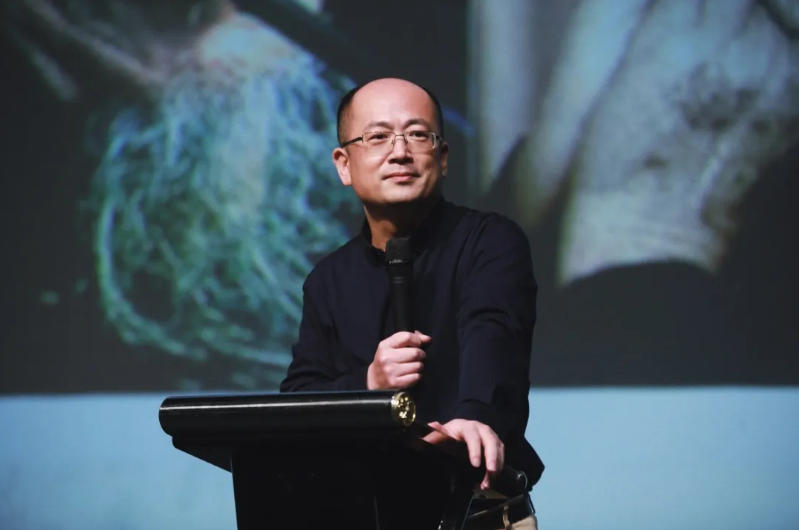
Dr. Zou Shien | A Physician’s Mission in Gynecological World
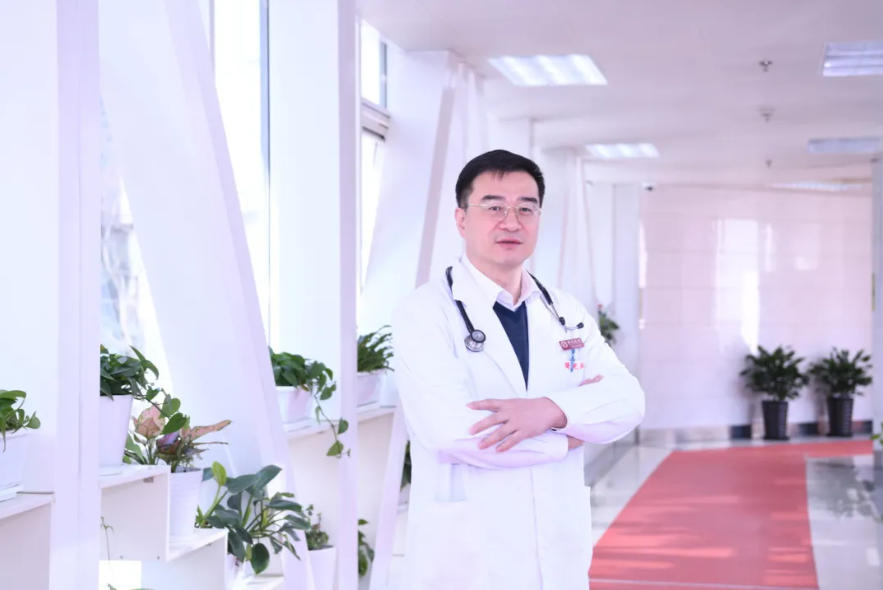
Dr. Cui Song | Healing the Heart, in Every Sense
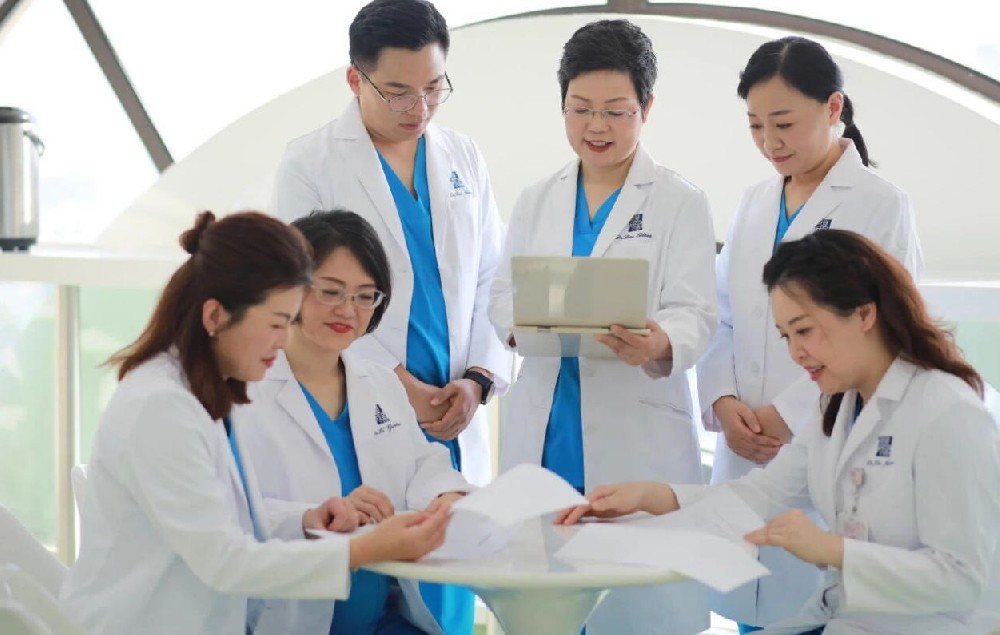
Dr. Bao Shihua | Where Dreams Begin from Reproductive Immunology
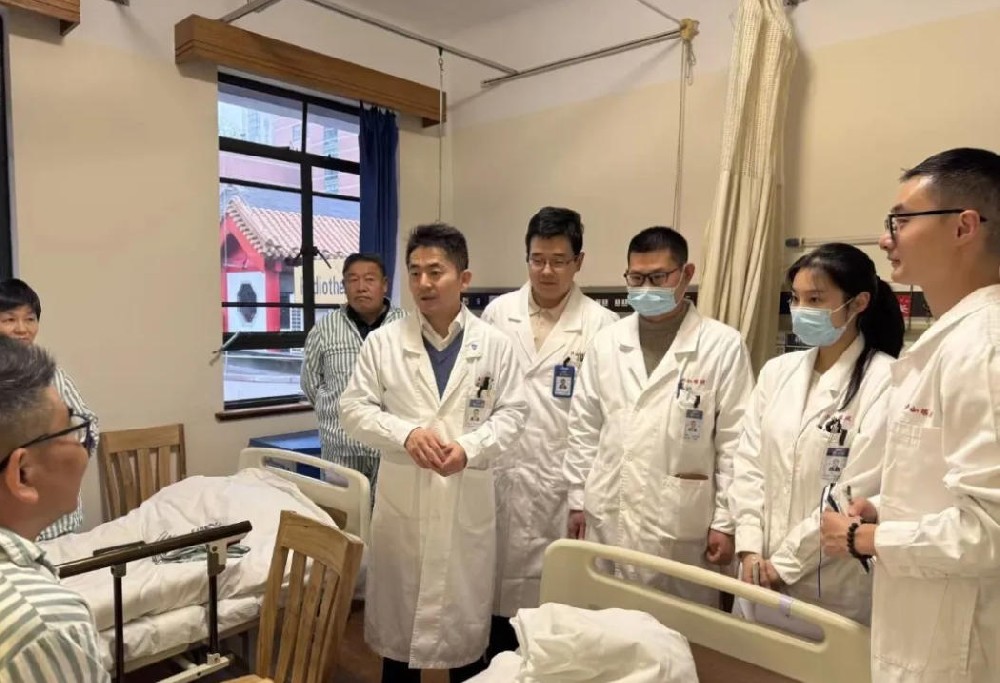
Dr. Yang Zhigang | The Art of the Healer: Between the Brush and the Brain
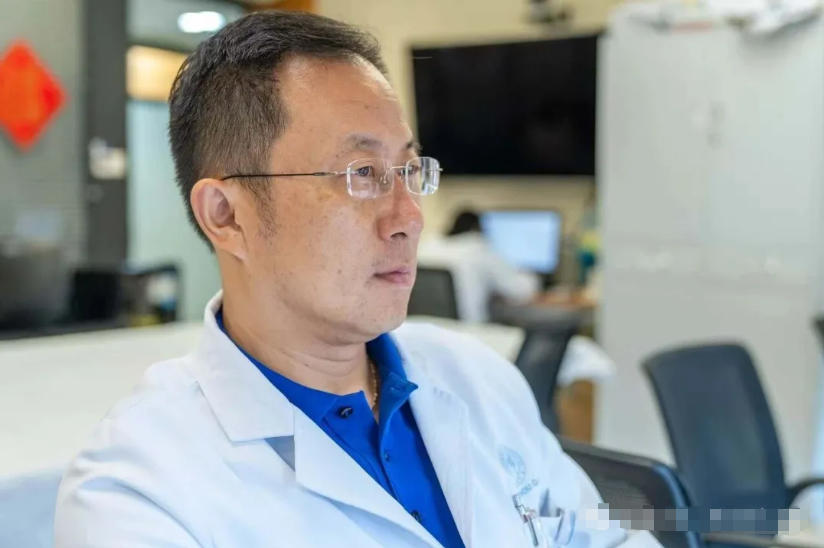
Dr. Zhou Qianjun | Sculpting Life in the Chest
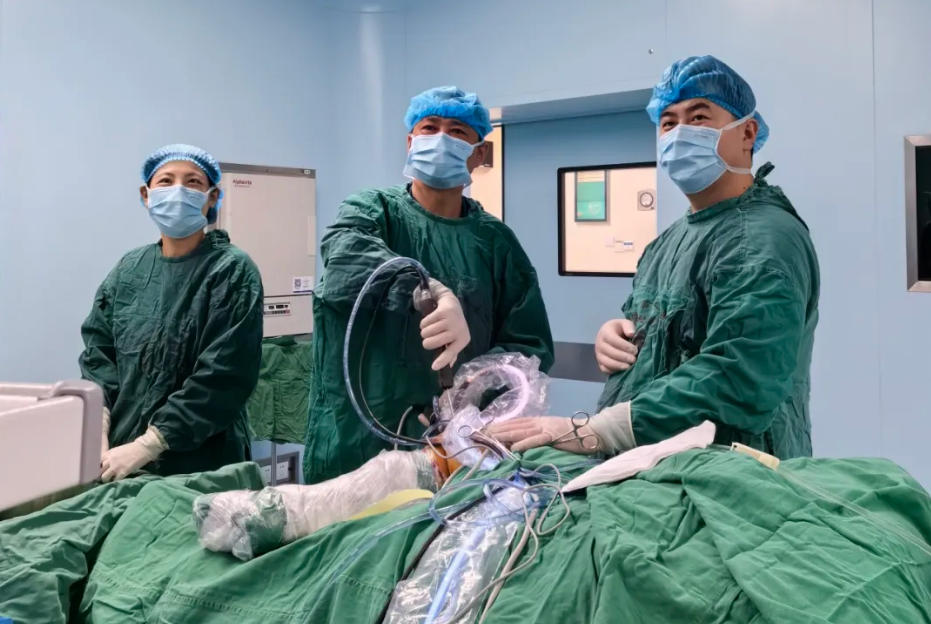
Dr. Cai Junfeng | Guarding Bone and Joint Health, Improving Quality of Life
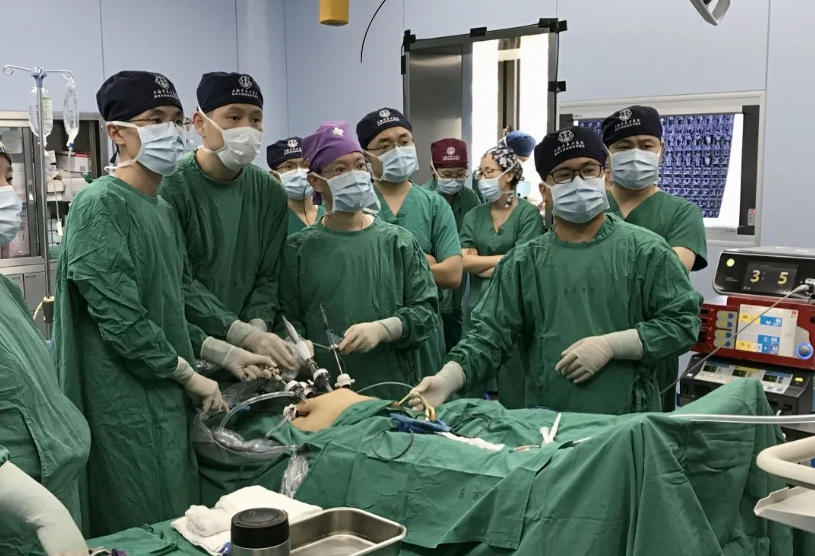
Dr. Cui Xingang | The Medical Dream of a Shanghai Urologist

Dr. Xu Xiaosheng|The Gentle Resilience of a Male Gynecologist

Dr. Shi Hongyu | A Cardiologist with Precision and Compassion

Dr. Zhang Guiyun|The Inspiring Path of a Lifesaving Physician